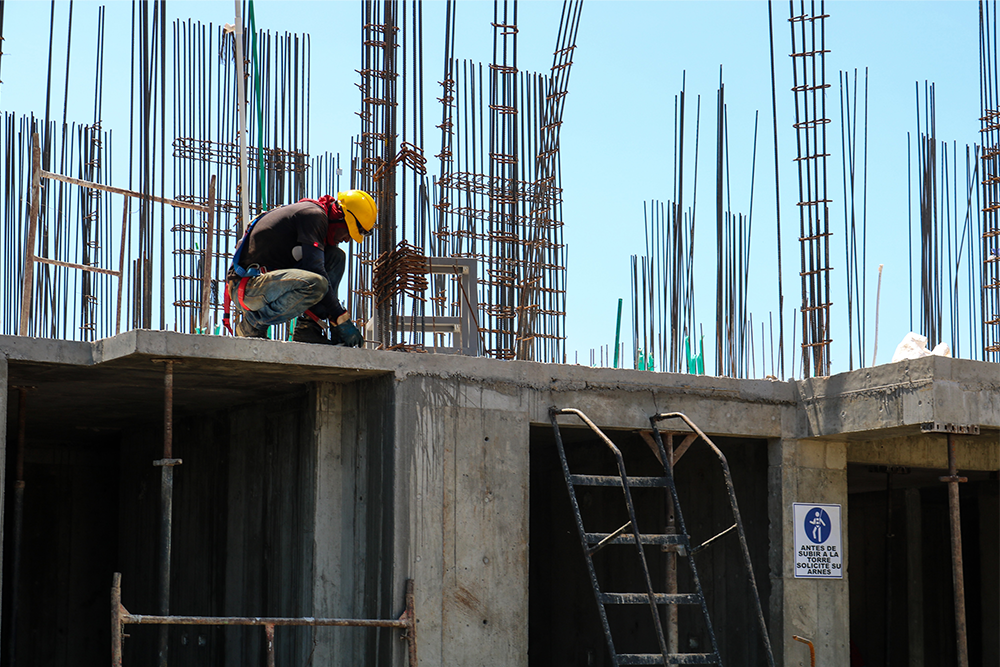936 results found
Featured results



More results


The Digitalisation Impact Tool was developed to support the Green Information and Communications Technology (ICT) strategy for the Ministry of Energy and Infrastructure (MOEI), United Arab Emirates with the objective of the Digitalisation Tool is to document the positive impact of digitalisation on the environment, MOEI, and MOEI’S customers
Internal researchers from the Department of Studies, Research and Development at the Ministry of Energy and Infrastructure (MOEI), United Arab Emirates are developing the InfraTech solution with the aim to increase road safety by considering driver behaviour through the development of a new mobile application
The Ministry of Energy and Infrastructure (MOEI), United Arab Emirates developed the sustainability tools to help project teams track, document, and monitor data relating to sustainability during the project lifecycle and to improve decisionmaking
The cool pavement technology project supports the Ministry of Energy and Infrastructure (MOEI), United Arab Emirates Sustainability Strategy : Organising, planning, and guaranteeing the sustainability of the infrastructure, and the transport sector
The Arab Roadmap roadmap aims to attract investment towards decarbonising the construction sector, with a view to achieve Paris Agreement goals by 2050. The Arab Roadmap acts as a blueprint for the Arab countries, supporting the initiation of each country’s national roadmap by addressing countries’ diverse conditions, including climatic, economic, demographic, energy emissions, and urbanisation patterns.
The G20/GI Hub Framework on How to Best Leverage Private Sector Participation to Scale Up Sustainable Infrastructure, which sets out opportunity areas and actions for the G20 to enable the private sector to scale up its investments in sustainable infrastructure.

‘Revitalising infrastructure investment’ was a focus at the recent G20 FMCBG meeting, and GI Hub-led work on sustainable investment and public infrastructure spending was endorsed.
In 2021, the G20 Finance Ministers and Central Bank Governors asked the G20's Sustainable Finance Working Group (SFWG) to develop a multi-year G20 Sustainable Finance Roadmap identifying the G20’s sustainable finance priorities, and to work on specific priority areas. This report characterises challenges, reviews existing practices, and proposes a set of recommendations to progress in the priority areas.

This paper from EDHECinfra explores how institutional investors should incorporate ESG elements into the financial management of their portfolios.

This report leverages the experience of NGFS members and observers, as well as a survey of 25 central banks and 24 financial supervisors, to examine key challenges related to market transparency in green finance - particularly with regard to taxonomies; green external review and assessment; and climate transition metrics, frameworks, and market products. It also aims to inform a broad dialogue with market participants to find potential solutions to policy challenges.

Deloitte's Analytics Institute published this analysis of how new technology and data analytics can be used for predictive maintenance.

The LTIIA's report on Climate-Resilient Infrastructure: How to scale up private investment examines the current state of climate-resilient infrastructure investment and brings forward recommendations and proposals.

Inflation continues to soar globally, the IMF forecasts inflation will rise from 4.7 percent in 2021 to 8.8 percent in 2022. In India, wholesale inflation has remained in double digits for more than a year. The IMF now expects global growth to slow from 6.0 percent in 2021 to 3.2 percent in 2022 and 2.7 percent in 2023.
Last week, the GI Hub facilitated an infrastructure roundtable in Toronto with Canadian private sector participants, industry associations, and government infrastructure agencies.

Co-financing provide a supportive enabling environment that minimises risk exposures, catalysing private co-financing for infrastructure in middle- and low-income countries.


The QII Principles are voluntary, non-binding principles that reflect a common strategic direction and aspiration for quality infrastructure investment.

The QII Principles are voluntary, non-binding principles that reflect a common strategic direction and aspiration for quality infrastructure investment.

Infrastructure is key to achieving fair and sustainable economic growth and climate targets. Three trends to stimulate the private sector to fund the large-scale change to enable infrastructure to reach its climate and development potential







 G20 Chair's Summary FMCBG Meeting 12-13 October 2022
G20 Chair's Summary FMCBG Meeting 12-13 October 2022




